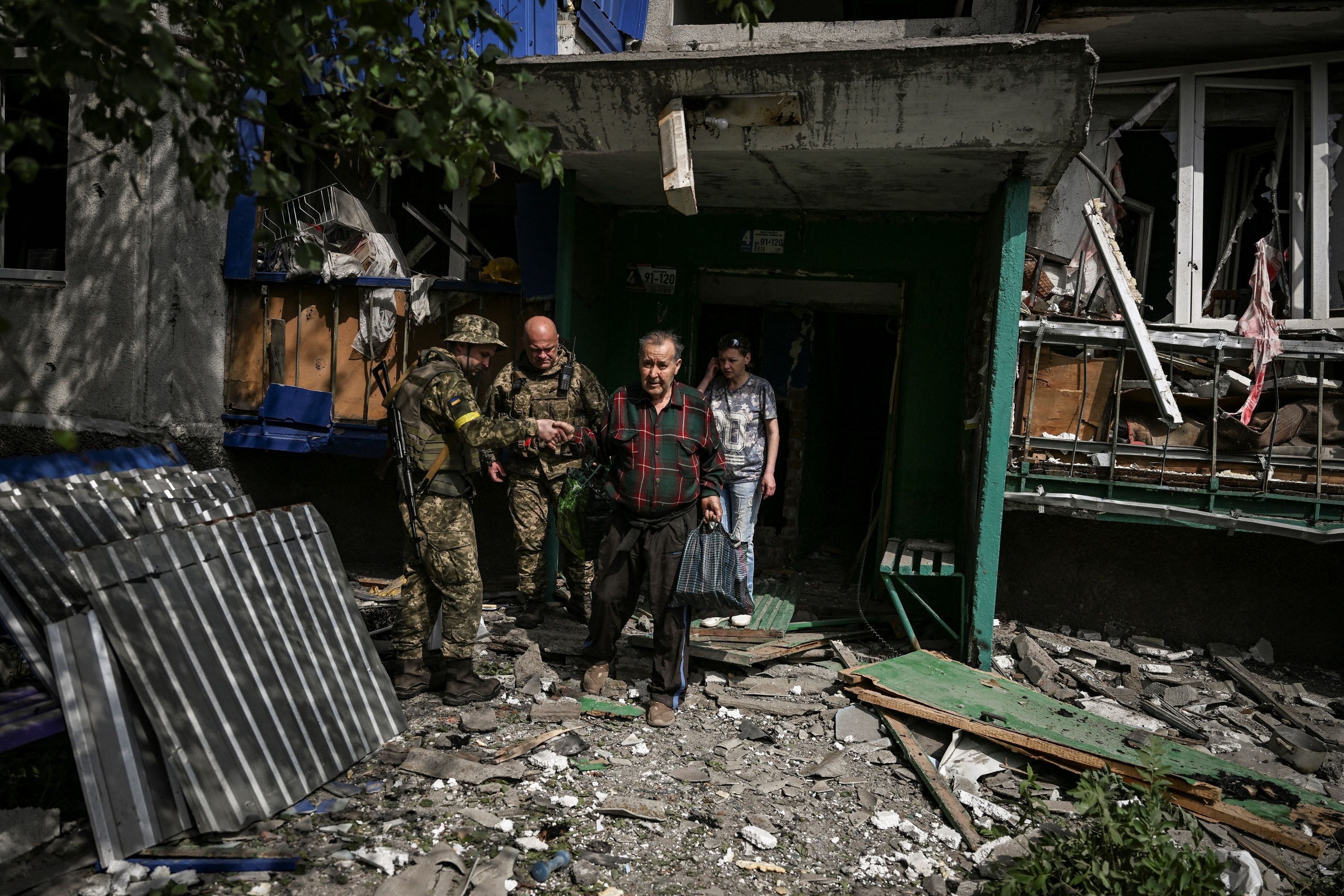The economic war on Russia is Ukraine’s best hope
Editorial: Provided China doesn’t decide to underwrite President Putin’s rickety war machine and weak economy, the sanctions will make an increasing difference

As The Independent’s poignant reports from Kim Sengupta indicate, the war is not going well for the Ukrainians in the east of their country.
After months of bungling and failure, Russia is gradually bringing to bear some of the few advantages it possesses – sheer weight of heavy artillery, and an inhuman willingness to target civilian areas with it. Not only is this the biggest European conflict since the Second World War, it’s also one of unusual savagery between peoples who are so traditionally close. Even if the fighting were to stop in the morning, the hatred would persist for many decades.
Pulverising the land he wishes soon to occupy may not be rational, but it makes perfect sense to the man who started all this more than three months ago. For him, it isn’t about people or even economic resources, but purely about land. He equates territory with power and has made no secret of wanting to regain Russia’s past dominance of eastern Europe and the Caucasus.
Despite the Ukrainian setbacks, the war seems likely to drag on for some time. Despite the shelling and its military superiority on paper, Russia has demonstrated that it has no capacity to inflict a lightning defeat on the Ukrainians. The best it can hope for is an uneasy truce, and to sit on its gains in the east and south.
Ukraine isn’t in a position to push the Russians back to their de jure borders, or even the de facto frontier set in 2014, after the occupation of Crimea and parts of the Donbas. But neither will President Zelensky cease fighting and accept the status quo.
The Russians are wise enough not to escalate into chemical or nuclear weapons; as President Biden has made it clear, he won’t give the Ukrainians weapons to attack Russia proper, but Nato will continue to support Kyiv – though delivery of material has been sluggish. And so the war of attrition will continue, indefinitely.
The economic war against Russia will thus be increasingly important, degrading Russia’s ability to fund its aggression and piling the pressure on the living standards of the Russian people. This front is also enjoying mixed fortunes. The latest good news is that the European Union has managed to agree a package that will reduce oil imports by 90 per cent by the year’s end.
However, trade in commodities continues, and a deep irony has emerged. Germany, in particular, spent decades trying to build up trade and economic interdependence with Russia in order to prevent future wars, just as it had with France through European integration. It was a well-meaning policy that could have worked, and did for a time; but it could not survive the arrival of an imperialist such as Vladimir Putin.
It is necessarily taking Europe time to disentangle the links and cut the pipelines. Meanwhile, Hungary is emerging as almost a Russian spy in the camp, resisting sanctions and refusing to supply weapons or even allow weaponry to cross its territory. It is a terrible and surprising mistake.
Viktor Orbán, Hungary’s near-autocrat, seems to be prey to the traditional delusion of leaders in that part of the world, which is that they can play Russia and Germany (now allied to the west) off against each other.
To keep up to speed with all the latest opinions and comment, sign up to our free weekly Voices Dispatches newsletter by clicking here
President Orbán, a man not given to modesty, may be overestimating the strength of his position. He has teased Brussels, Paris, Berlin and Washington about human rights, money and now Russian appeasement almost to breaking point. He should reflect on the likely fate of small nations who have to confront Russia without the military protections of Nato or the economic resources of the EU. It seems memories of 1956 are fading.
Overall, though, the direction of travel in sanctions against Russia seems encouraging. There will be those, such as Turkey, Iran and India, who will be unreliable and add to leakages, but provided China doesn’t decide to underwrite President Putin’s rickety war machine and weak economy, the sanctions will make an increasing difference.
Turkey, like Hungary, should ask itself whether Russian regional supremacy is really in its national interest. Controlling access to the Black Sea, and still a Nato member, it would be right for Turkey to help guarantee safe passage for vital exports of grain and sunflower oil from Ukrainian ports to the Middle East and north Africa.
Short of a more decisive military response from the west, hoping that the economic war will turn the tide is the best that the brave but beleaguered Ukrainians can hope for.
Join our commenting forum
Join thought-provoking conversations, follow other Independent readers and see their replies
Comments
Bookmark popover
Removed from bookmarks